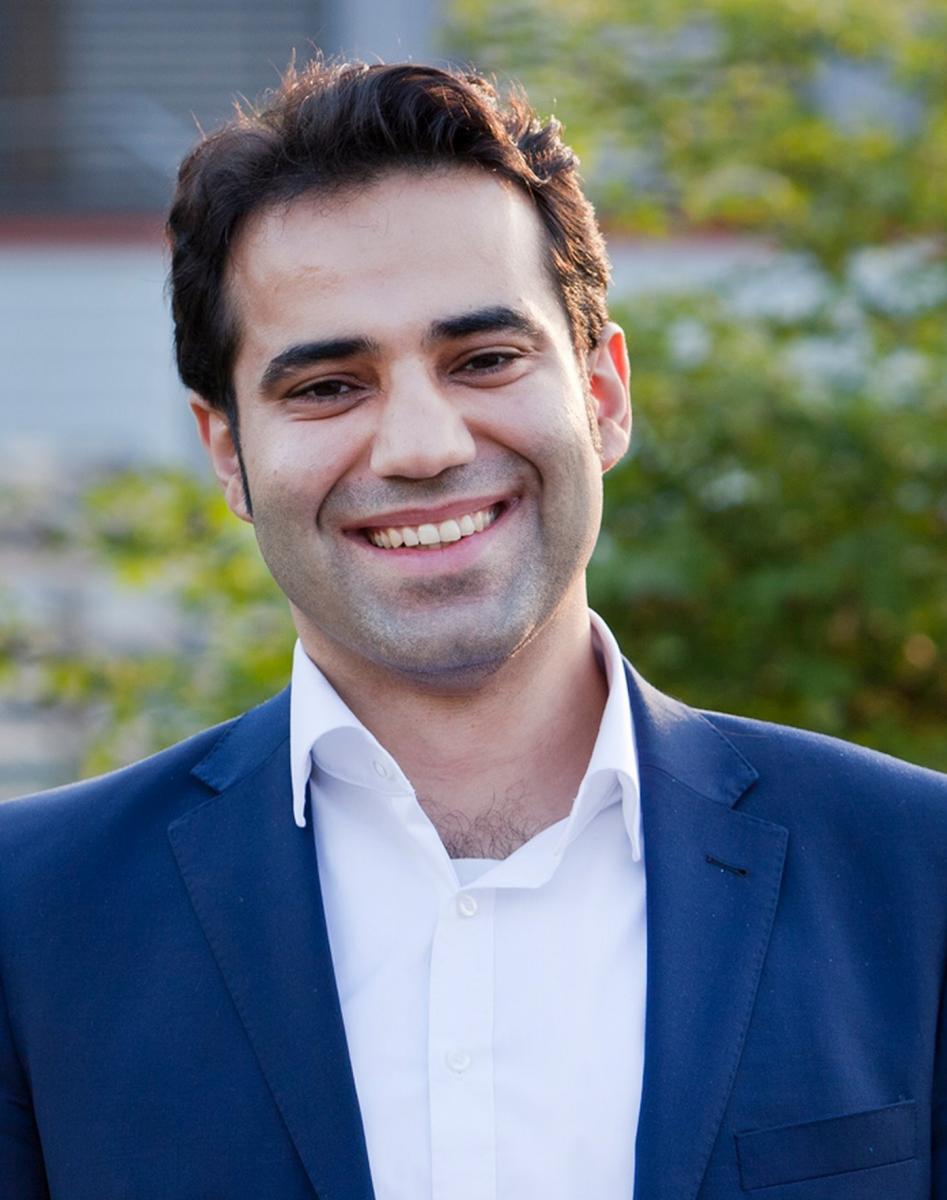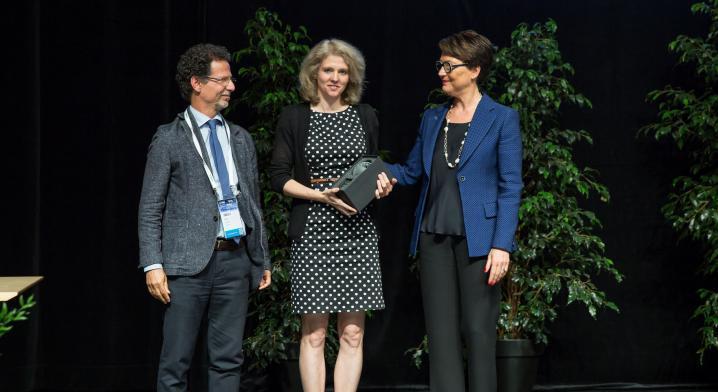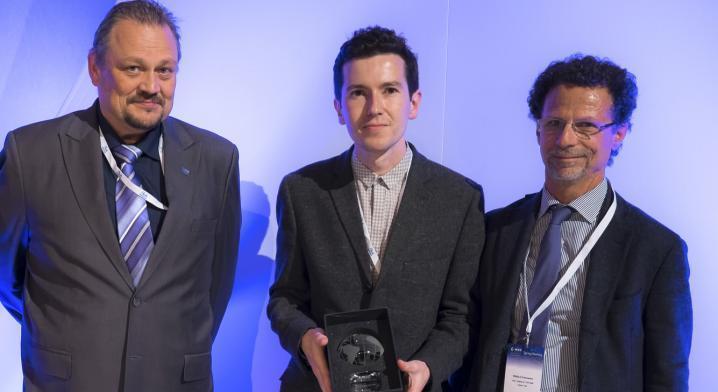EU-40 Materials prize

We seek to honor those whose work has already had a major impact in the field, and those young researchers whose work already leads to great expectations for future leadership.
The award is reserved to researchers showing exceptional promise as leaders in the materials science having performed the research for which this prize is awarded while working in Europe.
The award consists of a 5,000 Euro cash prize, a certificate, waiver of the meeting registration fee and an invited talk at the 2022 Spring Meeting of the European Materials Research Society where the award will be presented.
Nominations should include:
- Curriculum Vitae including birth date;
- List of key publications (including citations and impact factors);
- Letters of support from two well established scientists;
- Any additional supporting information relevant to the award.
The nomination package should not exceed 10 pages (excluding the list of key publications) and should be sent by email to emrs@european-mrs.com (subject:eu40materials) before March 15th, 2022.
The nominee shall not have reached his/her 40th birthday in the year in which the nomination is submitted (2021). Proposals will be evaluated shortly after and the candidates will be informed end of March 2022.
The 2022 E-MRS EU-40 Materials Prize is awarded to Prof. Michael Saliba, Institute for Photovoltaics (ipv) University of Stuttgart, and Research Center Jüllich, Germany. His plenary talk is scheduled for Wednesday June 1st at 18:00 (Paris time).
|
|
||
 |
2022 E-MRS EU-40 Materials Prize Presentation The Versatility of Perovskite Materials for Optoelectronics Prof. Michael Saliba |
|
|
Perovskite solar cells (PSCs) have created much excitement in the past years and attract spotlight attention. This talk will provide an overview of the reasons for this development highlighting the historic development as well as the specific material properties that make perovskites so attractive for the research community.[1-3] The current challenges are exemplified using a high-performance model system for PSCs (multication Rb, Cs, methylammonium (MA), formamidinium (FA) perovskites).[2,3] The triple cation (Cs, MA, FA) achieves high performances due to suppressed phase impurities. This results in more robust materials enabling breakthrough reproducibility. Through multication engineering, usually not-considered alakali metals, such as Rb, can be studied[5] resulting in one of the highest voltages compared to the bandgap. Polymer-coated cells maintained 95% of their initial performance at elevated temperature for 500 hours under working conditions, a crucial step towards industrialisation of PSCs. To explore the theme of multicomponent perovskites further, molecular cations were re-evaluated using a globularity factor. With this, we calculated that ethylammonium (EA) has been misclassified as too large. Using the multication strategy, we studied an EA-containing compound that yielded a high open-circuit voltage of 1.59 V. Moreover, using EA, we demonstrate a continuous fine-tuning for perovskites in the "green gap" which is relevant for lasers and display technology. [6] The last part elaborates on a roadmap on how to extend the multication to multicomponent engineering providing a series of new compounds that are highly relevant candidates for the coming years, also in areas beyond photovoltaics, for example for medical scintillation detectors.[6,7] [1] N. Jeon et al., Nature (2015) |
||
| Short CV | ||
| Prof. Michael Saliba is a full professor and the director of the Institute for Photovoltaics (ipv) at the University of Stuttgart, with a dual appointment at the Research Center Jülich, Germany. His research focuses on a deeper understanding and improvement of optoelectronic properties of photovoltaic materials with an emphasis on emerging perovskites for a sustainable energy future. Since 2021, Michael is the Speaker of the DFG Graduate School (GRK) 2642 for “Quantum Engineering”. In 2022, he was awarded an Starting Grant by the European Research Council (ERC).
Previously, Michael was at TU Darmstadt, Fribourg University and a Marie Curie Fellow at EPFL, Switzerland with research stays at Cornell and Stanford. He obtained his PhD at Oxford University and MSc degree at Stuttgart University together with the Max Planck Institute for Solid State Research. |
||
Department of Electronics Design - Holmgatan 10, 85170 Sundsvall, Sweden & Guangdong Greater Bay Area Institute of Integrated Circuit and System, Guangzhou, China
+46 702287355 & +86 18311498633henryradamson@gmail.com / rad@giics.com.cn
Jardins de les Dones de Negre 1 Sant Adrià del Besòs 08930 Spain
+34 93 3562615+34 93 3563802
jrmorante@irec.cat
Ernst Ruska-Centre, Wilhelm-Johnen-Str, D-52425 Jülich, Germany
+49 2461 612417m.luysberg@fz-juelich.de


